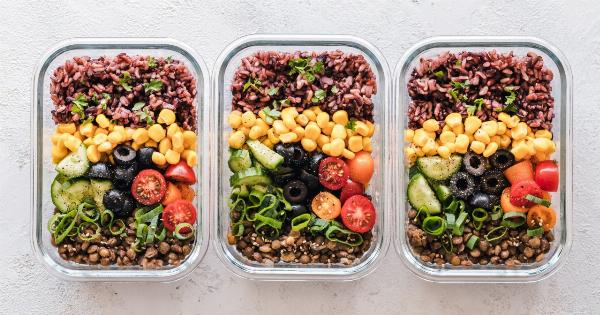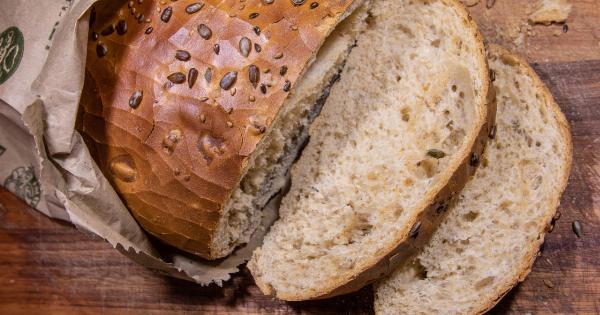Vegetable chips have become a popular snack option for those looking to satisfy their cravings while still maintaining a healthy lifestyle.
These chips claim to be a healthier alternative to traditional potato chips, as they are made from real vegetables. But are vegetable chips actually healthy? Let’s delve deeper into the nutritional content and manufacturing processes to find out.
1. What Are Vegetable Chips?
Vegetable chips are typically made from a variety of vegetables such as kale, carrots, beets, sweet potatoes, and zucchini.
These vegetables are thinly sliced, baked or fried until crispy, and then seasoned with various flavors like sea salt, barbecue, or even spicy seasonings. Brands often market them as a low-fat, low-calorie, and nutrient-rich snack.
2. Nutritional Content of Vegetable Chips
The nutritional content of vegetable chips can vary depending on the brand and the specific vegetable used. In general, they tend to have lower fat and calorie content compared to traditional potato chips.
However, it’s important to note that the nutrient content also varies depending on the preparation method (baked vs. fried) and the seasoning used.
Vegetable chips can be a good source of dietary fiber, especially if the whole vegetable is used. Fiber is essential for maintaining a healthy digestive system and can help regulate blood sugar levels.
These chips may also provide a range of vitamins and minerals depending on the vegetables used, including vitamin A, vitamin C, potassium, and iron.
However, it’s crucial to recognize that the nutrient content of vegetable chips can be significantly reduced during the manufacturing process.
The baking or frying process can lead to a loss of heat-sensitive vitamins, while the use of high heat and oil during frying can increase the fat content.
3. Ingredient Quality
One key aspect to consider when assessing the healthiness of vegetable chips is the quality of the ingredients used.
While many brands promote their chips as being made from real vegetables, it’s essential to examine the ingredient list for any additives, preservatives, or artificial flavors.
Some vegetable chips may be made from a combination of dried vegetables, vegetable powders, and other ingredients that may not offer the same nutritional benefits as fresh vegetables.
Additionally, the use of unhealthy cooking oils and excessive sodium can also diminish the overall healthiness of these snacks.
4. Sodium Content
One significant concern when it comes to vegetable chips is their sodium content. Many brands heavily season their chips with salt to enhance the flavors.
While a little amount of added salt is fine, excessive sodium intake can have negative consequences for individuals with high blood pressure or other health conditions.
If you opt for vegetable chips, it’s crucial to read the nutritional information and choose brands with lower sodium content. Additionally, pairing these chips with a low-sodium dip or salsa can help minimize the overall sodium intake.
5. Potential Health Benefits
Despite the potential drawbacks and inconsistencies in the nutritional content of vegetable chips, they can still offer some health benefits.
As previously mentioned, these chips are usually rich in dietary fiber and essential vitamins and minerals, which are important for a balanced diet.
Moreover, vegetable chips often serve as a healthier alternative for individuals who crave the crunch and satisfaction of regular chips but want to reduce their intake of unhealthy fats.
They can be a practical transition for those trying to adopt healthier snacking habits without completely cutting out the enjoyment of chips.
6. Making Your Own Vegetable Chips
To ensure the healthiness of vegetable chips, you always have the option to make your own at home. By doing so, you can control the quality of the ingredients, the amount of oil and seasoning used, and even experiment with different vegetables.
To make vegetable chips at home, simply slice your chosen vegetables thinly, toss them in a small amount of olive oil or coconut oil, sprinkle with your preferred seasonings, and bake them in the oven until crispy.
This way, you can enjoy the crunch of chips while guaranteeing the freshness and nutritional value of your snack.
7. Moderation is Key
While vegetable chips can be a healthier alternative to traditional potato chips in moderation, it is crucial to remember that they should still be consumed as part of a balanced diet.
Snacking should not replace nutrient-dense meals that include a variety of whole foods.
It’s easy to get carried away and overconsume even healthier snacks like vegetable chips.
Keep in mind that portion control is essential to prevent excess calorie intake and ensure that you’re getting a balanced combination of macronutrients.
8. Conclusion
When it comes to the question of whether vegetable chips are actually healthy, the answer is not black and white.
While they do offer some nutritional benefits compared to regular chips, there are certain factors to consider, such as the cooking method, seasoning, and ingredient quality.
In general, it’s best to view vegetable chips as an occasional snack that can be enjoyed as part of a balanced diet.
It’s essential to read the labels, opt for brands with lower sodium and minimal additives, or even consider making your own at home to have full control over the ingredients and cooking process.






























